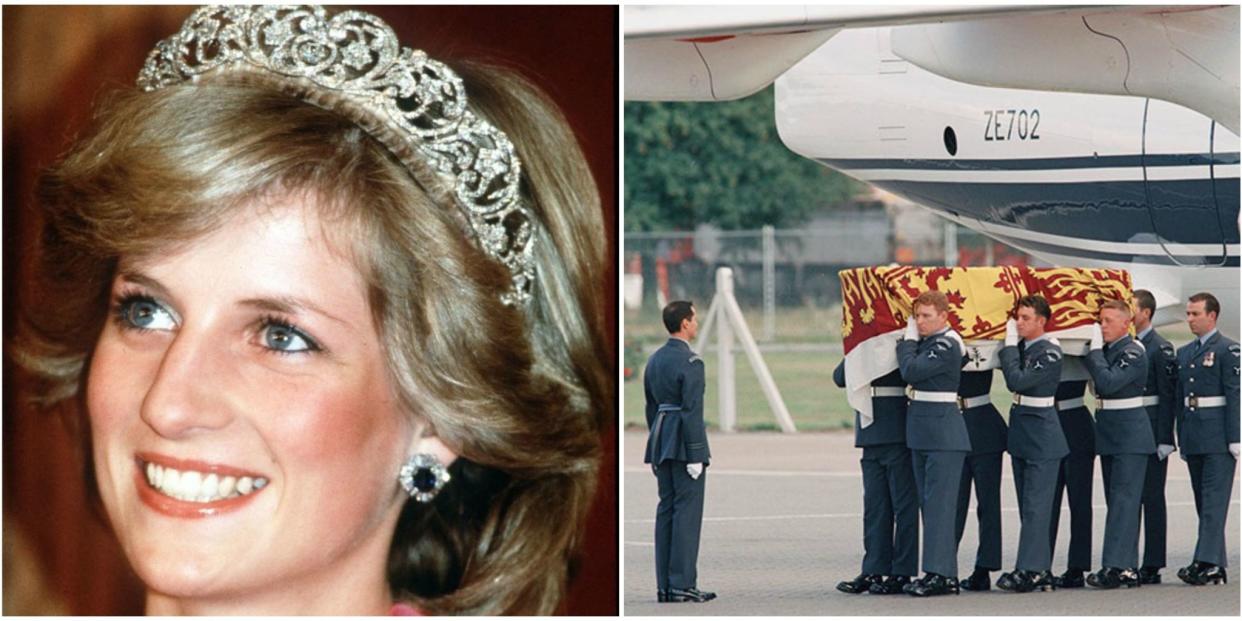I Reported on Princess Diana's Death 20 Years Ago — Here's What It Was Like


Sunday, August 31, 1997. The day the world woke up to discover Princess Diana had died in a car crash. When most people were first trying to absorb the news, I was standing inside the Paris tunnel where it had happened.
Hours before, I was on my way to bed after a late shift at the Press Association news agency where I was a reporter. It had been a quiet night, now that had changed dramatically. "You need to get Paris," my news editor barked down the phone. "There has been a car crash. Diana is injured. Dodi al Fayed is dead."

Shocked, I booked the first flight to Paris at dawn. I can't pretend I didn't feel excited as I prepared to go on such a huge story. All summer Diana had been on the front pages as her romance with Dodi played out for the cameras. Every day it seemed to be building up to some kind of climax. Now this.
About 4:20 in the morning the news broke that Diana had died. It was PA who announced her death first, ahead of the official confirmation. They had an excellent source and couldn't resist scooping the rest of the world.
The plane to Paris was packed with journalists. Even the most experienced of them seemed to be as shocked as I was. We had already heard reports the car was being chased by photographers. As well as shock about Diana's death, we weren't sure what kind of reception we would get.
On the ground, I got a taxi straight to the crash scene. It was about 8 in the morning when I reached the Alma Tunnel, near the Eiffel Tower. I was expecting it to still be cordoned off. But the wreckage of the Mercedes had been moved away and traffic was already running through one side.

People were so curious that they were walking inside to have a look. I managed to get in before police closed it off. The only sign was a dent in the bottom of the 13th concrete pillar where the car had crashed and the slightly bizarre sight of a bouquet of flowers that had been left in tribute.
Even after the tunnel was closed, people carried on arriving to get as close as possible. I spoke to many of them to get their reaction. There were some tears and some anger - at Prince Charles, at the media - but mostly they talked about their shock and sorrow for her two young sons.
The tunnel had opened completely and another reporter and I hired a taxi to drive us through. With so much cleared up it was difficult to imagine what had happened the night before.
In the late afternoon my news editor told me to get to the Pitié Salpêtrière Hospital where medics had battled to save Diana's life. Prince Charles and her sisters had arrived to take her body home.

A small group of journalists were allowed to watch from the sidelines on the basis they shared the details they saw. I would have dearly loved to be among them, but instead I joined the crowds of people on the street outside. In the late afternoon a hearse was driven out, the coffin covered with a Royal Standard.
There was a faint ripple of applause as a mark of respect, but most people stood in silence. All day I had been listening to other people's reactions, being a reporter. Now I felt sad as the finality of Diana's death started to sink in.
The next day the papers were full of pictures of the sad homecoming. The story had moved back to London and the huge outpouring of grief.

After a day or two I was called back in time to help cover the funeral. I was still in reporter mode, but like most people, it was impossible not be moved to tears by the sight of her sons walking behind her coffin, and the envelope with the word "Mummy" among the flowers. Only now they have revealed how difficult that was for them.
(Images: Getty, Jackie Brown)
From: Good Housekeeping UK
You Might Also Like

